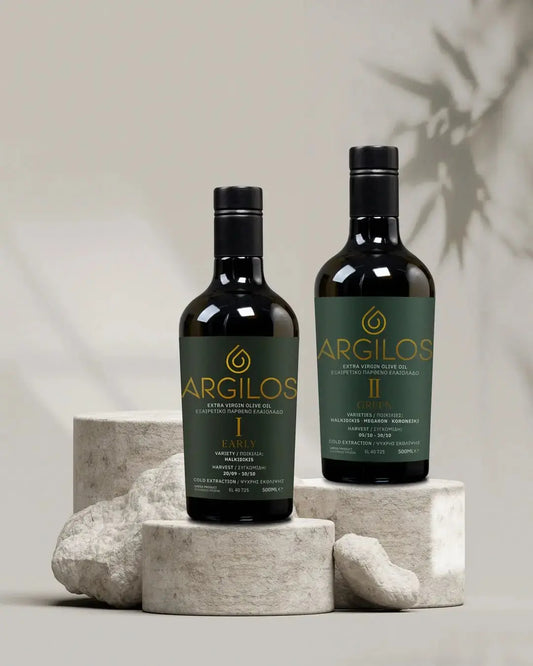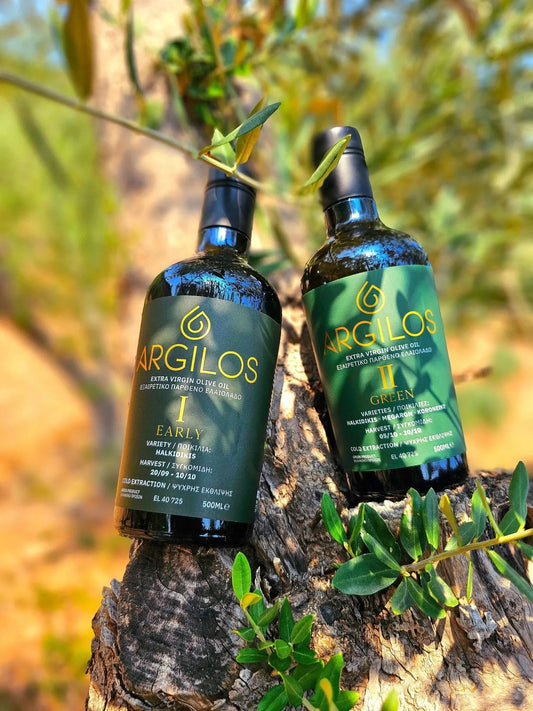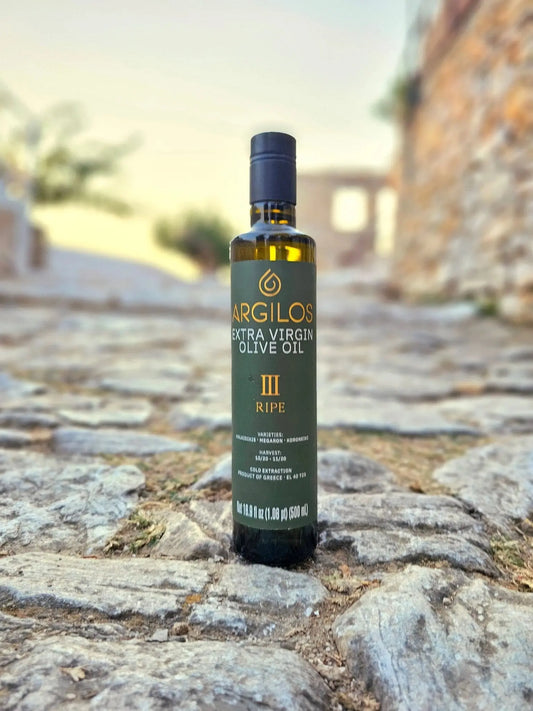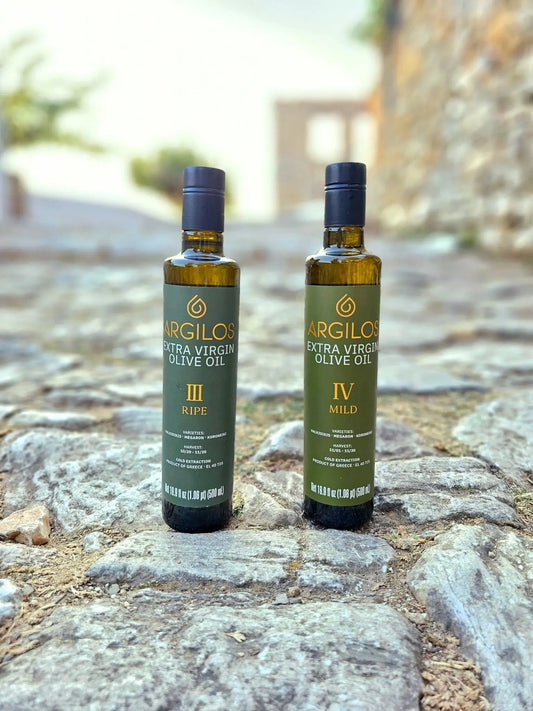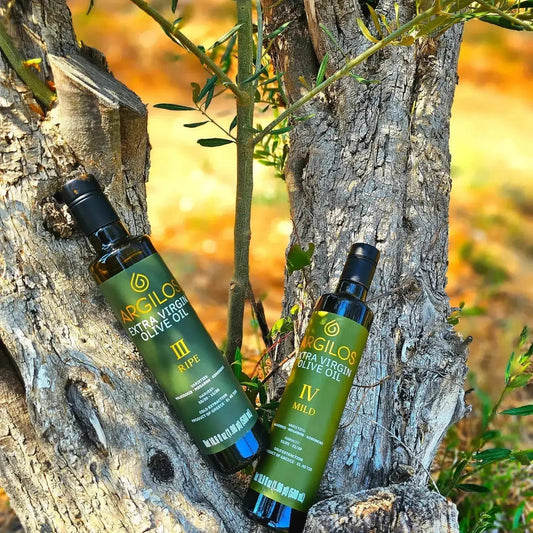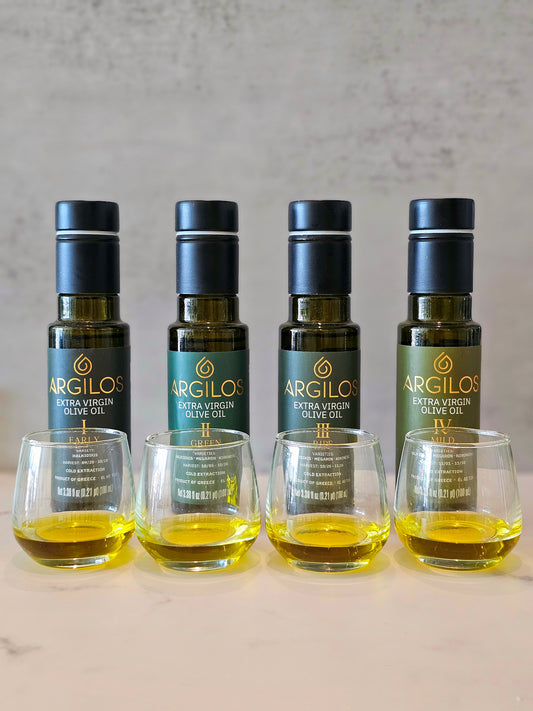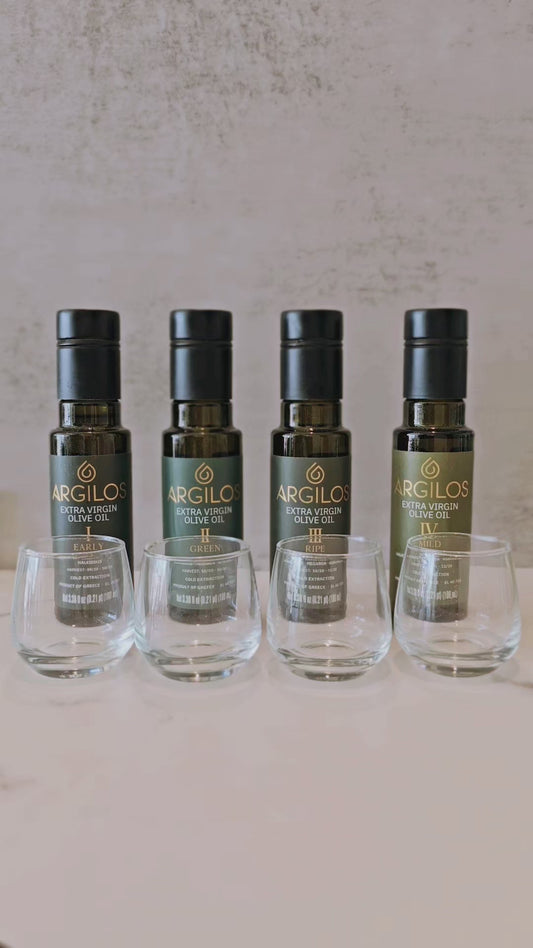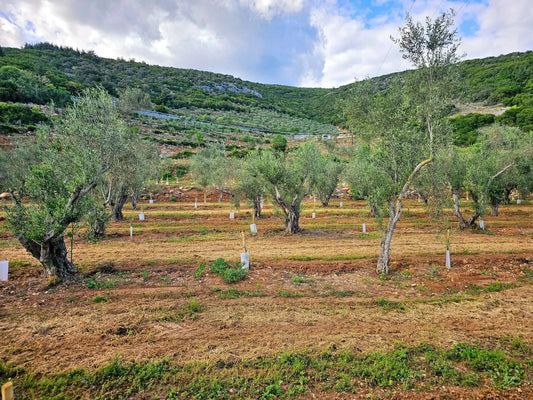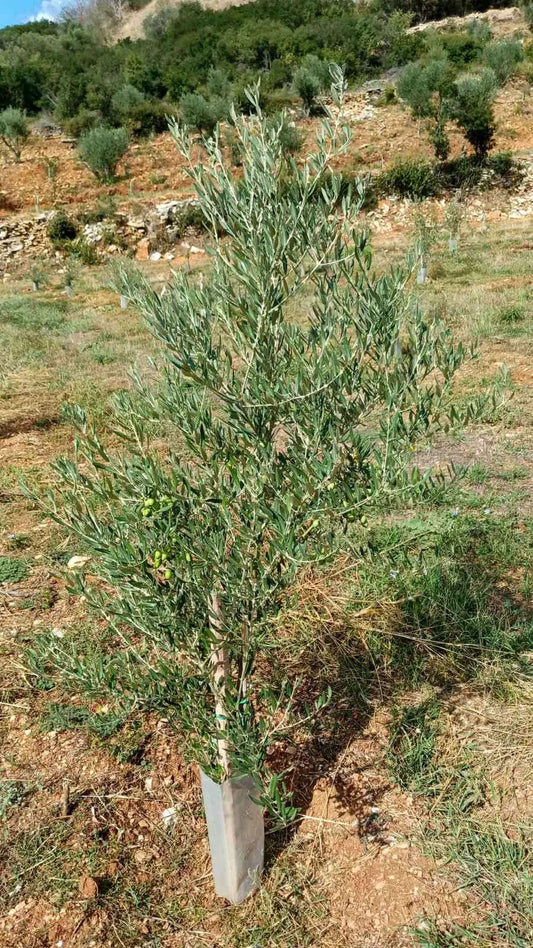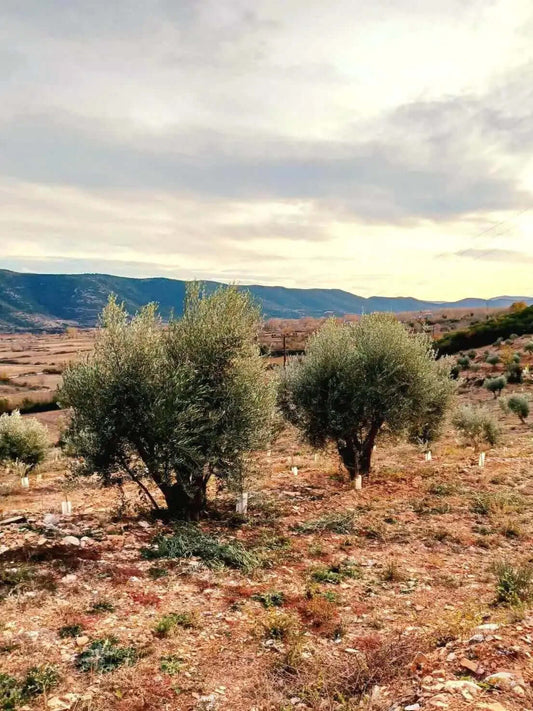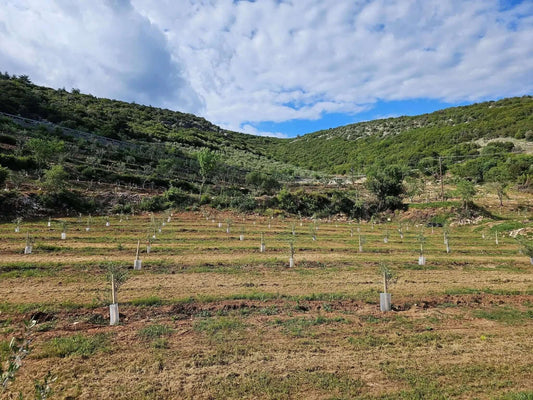How Polyphenols in Cold-Pressed Olive Oil Support Your Immune System
Share
The Power of Polyphenols: Nature's Immune-Boosting Compounds
In our fast-paced world where health consciousness continues to rise, the quest for natural immune support has never been more relevant. Buried within the golden-green elixir of authentic olive oil lies a treasure trove of bioactive compounds known as polyphenols - nature's own pharmacy for bolstering our body's defense mechanisms. These microscopic powerhouses don't just enhance the distinctive flavor profile of premium olive oils; they fundamentally transform how our immune system responds to daily challenges.
Polyphenols represent a diverse class of naturally occurring compounds characterized by their unique molecular structure featuring multiple phenol units. Their prevalence in cold-pressed olive oil, particularly those harvested early in the season, makes this ancient Mediterranean staple a cornerstone of immunological health. The relationship between these complex compounds and our body's defense system exemplifies the intricate dance between nature's offerings and human physiology.
Understanding Polyphenols: The Building Blocks of Immune Support
Polyphenols encompass a vast array of compounds including flavonoids, lignans, and phenolic acids, but olive oil specifically contains several distinctive varieties. Hydroxytyrosol, oleuropein, and oleocanthal represent the triumvirate of immune-supportive compounds that give high-quality olive oil its renowned health properties. These molecular structures function as both antioxidants and modulators of cellular function, offering multilayered protection against immunological challenges.
The molecular complexity of these compounds enables them to interact with various biological pathways in our bodies. Unlike synthetic additives, these naturally occurring substances have co-evolved with human physiology over millennia, allowing for sophisticated interactions with our immune responses that pharmaceutical compounds often cannot replicate. This evolutionary synergy creates a foundation for authentic immune support rather than mere symptomatic relief.
The Science Behind Olive Oil's Immune-Enhancing Properties
Modern immunology has illuminated the fascinating mechanisms through which olive oil polyphenols bolster our body's natural defenses. These compounds don't simply boost immunity in a blanket fashion - they intelligently modulate immune function, promoting balance and optimization rather than overstimulation.
Anti-inflammatory Pathways and Immune Regulation
Chronic inflammation represents a fundamental challenge to immune function, essentially creating a state of constant alert that eventually exhausts our defense resources. Oleocanthal, a key polyphenol in extra virgin olive oil, demonstrates remarkable anti-inflammatory properties comparable to ibuprofen but without synthetic compounds. This natural modulation helps prevent the immune system from becoming chronically activated, preserving its resources for genuine threats.
The anti-inflammatory cascade triggered by olive oil polyphenols works through inhibition of cyclooxygenase enzymes and regulation of nuclear factor-kappa B (NF-κB) pathways - sophisticated molecular mechanisms that help restore balance to overactive immune responses. This modulation represents a crucial difference between simply "boosting" immunity versus optimizing immune function through natural compounds.
Looking for a reliable source of these immune-supporting compounds? Nostos Goods brings the ancient tradition of olive cultivation from Mount Pangaion directly to your kitchen with our premium Argilos Extra Virgin Olive Oil collection.
Our early-harvest varieties contain exceptionally high polyphenol content, offering maximum immune support alongside unparalleled flavor profiles. Each bottle contains olive oil cold-pressed within hours of harvest, preserving the delicate polyphenols that more industrial processing methods typically destroy.
The Nostos Goods olive collection represents a commitment to both health and heritage, bringing authentic Greek olive products to eco-conscious consumers who understand that quality ingredients form the foundation of wellness.
From our award-winning extra virgin olive oils to our artisanal olive pastes, each product delivers the full spectrum of immune-supporting polyphenols alongside traditional Mediterranean flavors that transform everyday meals into nutritional powerhouses.
Maximizing Polyphenol Benefits: Harvest Timing and Processing Methods
Not all olive oils deliver equal health benefits - the polyphenol content varies dramatically based on cultivation practices, harvest timing, and processing methods. Understanding these variables helps discerning consumers select products with maximum immune-supporting potential.
The Critical Role of Early Harvest and Cold Pressing
The timing of olive harvest fundamentally determines polyphenol concentration. Early-harvested olives - those picked when still green or partially ripened - contain substantially higher polyphenol content than fully ripened fruits. This biological phenomenon occurs because polyphenols act as the olive's natural defense system, protecting the developing fruit against environmental stressors.
The processing method proves equally crucial for preserving these delicate compounds. Cold-pressing, where olives are crushed at temperatures below 27°C (80.6°F), prevents thermal degradation of polyphenols. Industrial methods employing higher temperatures and chemical extraction dramatically reduce these beneficial compounds, essentially stripping the oil of its immunological potential.
"The difference between early-harvest, cold-pressed olive oil and conventional alternatives isn't simply a matter of flavor - it represents a fundamental distinction in immunological potential. The former delivers nature's immune pharmacy intact; the latter offers merely a shadow of these benefits." - Journal of Agricultural and Food Chemistry
Incorporating Polyphenol-Rich Olive Oil Into Your Immune-Supporting Routine
Understanding olive oil's immune benefits represents only the first step - integrating this liquid gold into your daily regimen requires practical knowledge. Strategic consumption patterns can maximize polyphenol absorption and enhance overall immunological support.
Optimal Consumption Patterns for Maximum Benefit
Contrary to common practice, high-polyphenol olive oils deliver maximum benefits when consumed unheated. While cooking with quality olive oil remains nutritionally valuable, heat inevitably degrades some polyphenol content. Consider these evidence-based strategies for maximizing immune benefits:
- Drizzle raw olive oil over completed dishes rather than only using it during cooking
- Consume 1-2 tablespoons of premium olive oil with your morning meal to establish consistent polyphenol levels
- Pair olive oil with vitamin C-rich foods to enhance antioxidant synergy
- Store bottles away from light and heat to preserve polyphenol integrity
The timing of consumption also influences efficacy. Research suggests consuming polyphenol-rich olive oil with meals enhances absorption, as dietary fats facilitate uptake of these compounds. Morning consumption potentially establishes a baseline of immunological support throughout the day.
Beyond Immunity: The Multifaceted Benefits of Olive Oil Polyphenols
While immune support represents a primary benefit of olive oil polyphenols, these compounds offer remarkably diverse physiological advantages that create a foundation for holistic wellness.
Cardiovascular Protection and Cognitive Enhancement
The Mediterranean paradox - the observation that traditional Mediterranean populations experience lower cardiovascular disease rates despite consuming fat-rich diets - finds partial explanation in olive oil's polyphenol content. These compounds reduce oxidation of LDL cholesterol, decrease inflammatory markers, and improve endothelial function - creating a trifecta of cardioprotective effects.
Emerging research also suggests olive oil polyphenols may offer neuroprotective benefits, potentially slowing cognitive decline. The mechanisms appear linked to reduced neuroinflammation and enhanced autophagy - the cellular "housekeeping" process that clears damaged proteins from neural tissue. These cognitive benefits create an intriguing connection between immune function and brain health, as neuroinflammation increasingly appears linked to various cognitive disorders.
Frequently Asked Questions About Olive Oil Polyphenols and Immunity
| Question | Answer |
|---|---|
| How can I identify olive oils with high polyphenol content? | Look for early-harvest, single-estate oils with harvest dates printed on bottles. The presence of a peppery sensation at the back of the throat indicates high oleocanthal content. |
| Do polyphenol benefits diminish over time? | Yes, polyphenol content gradually decreases after pressing. For maximum benefits, consume olive oil within 12-18 months of harvest date. |
| Can cooking with olive oil destroy polyphenols? | High-temperature cooking reduces polyphenol content, though many compounds remain stable at moderate cooking temperatures. For maximum benefits, use some portion of your olive oil unheated. |
Cultivating Wellness: The Future of Olive Oil in Immune Health
As our understanding of nutritional immunology advances, olive oil polyphenols continue emerging as protagonists in the narrative of natural immune support. Current research explores increasingly specific applications, from viral defense mechanisms to potential applications in autoimmune conditions.
Sustainability and Health: The Dual Promise of Traditional Olive Cultivation
Beyond personal health benefits, supporting traditional olive cultivation represents an investment in environmental sustainability. Ancient olive groves sequester carbon, prevent soil erosion, and maintain biodiversity. This connection between personal and planetary health resonates particularly with environmentally conscious consumers seeking products aligned with both wellness and ecological values.
The ancient olive traditions of regions like Mount Pangaion in Greece represent not merely historical curiosities but living laboratories where generations of knowledge inform modern wellness practices. By selecting oils from such heritage producers, consumers participate in preserving both cultural wisdom and biological diversity while simultaneously supporting their own immunological resilience.
The relationship between olive oil polyphenols and immune function exemplifies the sophisticated dance between natural compounds and human physiology - a reminder that sometimes, the most effective solutions arise not from novel pharmaceutical developments but from rediscovering traditional wisdom through the lens of modern science.


